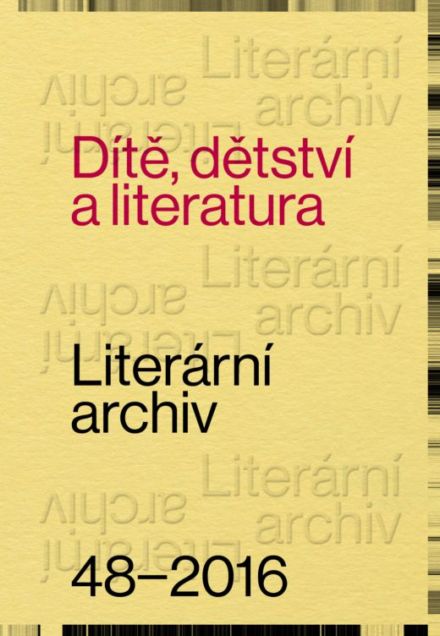Děti a holocaust
Young Adults
Memory in Literature for Children and Young Adults in the Last Two Decades
Author(s): Svatava UrbanováSubject(s): Language and Literature Studies, Jewish studies, Czech Literature
Published by: Památník národního písemnictví
Keywords: Holocaust; Second World War; children’s literature; authenticity and facticity; fictional; worlds; the restoration of memory
Summary/Abstract: The article is concerned with the topic of the Holocaust as it appears in literature for children and young adults, Jewish children’s diaries written in ghettos and concentration camps, memoirs, iction about the individual in society, and publications related to childhood during the Second World War, as they appeared in Czech and translation after the Changes beginning in November 1989. The interpretational insights are preceded by pointing to the variety of approaches taken in interpretation, with regard to genres, theories of the child’s viewpoint, models of memory, and concepts of reading based on the Constance School of reception theory. Simply to facilitate orientation and to draw attention to the special inner links amongst author, protagonist, and reader, all the works here are divided into four subgroups, which are concerned with the Holocaust, childhood, and the role of facticity and authenticity. The irst group of works comprises books written by children who did not survive the war. They are now called belatedly published diaries of Jewish children who experienced Theresienstadt and Auschwitz. The manuscripts were sometimes kept by relations who had long hesitated to publish them. The second group comprises memoirs that have a strong emotional tinge and were mostly written for descendents. The writers started from their memories and illed in gaps later. The third group comprises works of belles-lettres by authors with personal experience of the Holocaust, but who have tried to create artistic works. The fourth group consists of authors, illustrators, and third-generation descendents of eye witnesses, who work with historical memory in the form of archive records, raising hitherto socially taboo questions. Amongst these titles there are also comics and ilm adaptations. The exploration of the topics of the Holocaust and the war from the standpoint of personal and historical memory also concerns ethical and moral values, cultural and ethnic identity, and forms of transformation, and consciously makes reference to social bonds.
Journal: Literární archiv
- Issue Year: 2016
- Issue No: 48
- Page Range: 30-45
- Page Count: 16
- Language: Czech

